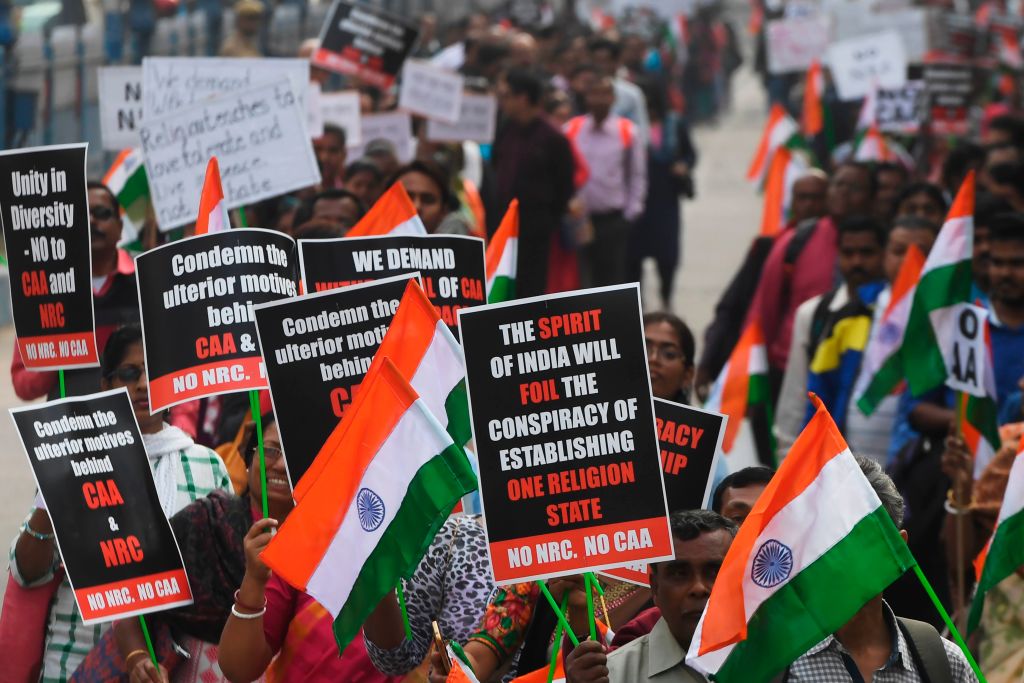- Saturday, July 27, 2024
The law has been introduced only to benefit the six minority communities from Pakistan, Afghanistan and Bangladesh.

By: Shubham Ghosh
THE Indian home affairs ministry on Monday (11) notified the implementation of the contentious Citizenship Amendment Act (CAA) 2019 to streamline the citizenship granting process for undocumented non-Muslim migrants from the three South Asian countries of Pakistan, Bangladesh, and Afghanistan. It calls for citizenship based on religion.
Of the three nations, Pakistan and Bangladesh have direct borders with India.
The CAA was cleared by the Indian parliament in December 2019. It received the assent of the then president Ramnath Kovind and became a law.
The Modi government today notified the Citizenship (Amendment) Rules, 2024.
These rules will now enable minorities persecuted on religious grounds in Pakistan, Bangladesh and Afghanistan to acquire citizenship in our nation.
With this notification PM Shri @narendramodi Ji has…
— Amit Shah (Modi Ka Parivar) (@AmitShah) March 11, 2024
Under the legislation, citizenship is granted to six minority communities — Hindu, Sikh, Buddhist, Jain, Parsi and Christian — who have fled religious persecution from Pakistan, Afghanistan and Bangladesh. The citizenship will also be given to those who entered India from the three countries on or before December 2014.
Read: India makes CAA, a citizenship law, reality 4 years after clearing bill
The CAA amends the Indian Citizenship Act of 1955. Under the amended Act, the migrants ill get a fast-track Indian citizenship in six years. The amendment also reduces the residency requirement for naturalization of these migrants from 11 years to five. This contrasts with the previous norm of a 12-year residency requirement for naturalization. Muslims are excluded from the CAA since they are not considered a minority in the specified countries.
Under the Citizenship Act of 1955, Indian citizenship by registration or naturalization is granted to non-Muslim minorities from the three countries in nine Indian states, such as Gujarat, Rajasthan, Punjab, Delhi, Chhattisgarh, Haryana, Madhya Pradesh, Uttar Pradesh, and Maharashtra.
The citizens of India will not be affected by the CAA since it has been introduced only to benefit the six minority communities from Pakistan, Afghanistan and Bangladesh.
The CAA deals with religious persecution in these countries, the constitutions of which call for a specific state religion. Followers of other religions have been persecuted in all of them.
The Indian home ministry has prepared a portal to make it easier for the applicants of citizenship since the entire process will be conducted online. The applicants will have to provide the year they entered India without travel documents. Official sources said no documents will be sought from the applicants.
Along with the CAA, mention is also being made about the NRC — National Register of Citizens. Established in 1951, it is a comprehensive database that encompasses identities of the Indian citizens. Currently, efforts are underway to revise the NRC of 1951, particularly in the north-eastern state of Assam bordering Bangladesh, which faces a challenge from illegal immigration. The goal is to stop unauthorised entries and create a deterrence against potential migrations. The Indian government has said that the CAA has no link with NRC.
A number of opposition parties have reacted against the government’s decision about the CAA alleging that it is meant to polarize people and elections and turn India’s Muslim minorities into second-class citizens. They also accused the government of playing politics by raking up the matter just ahead of the national elections.